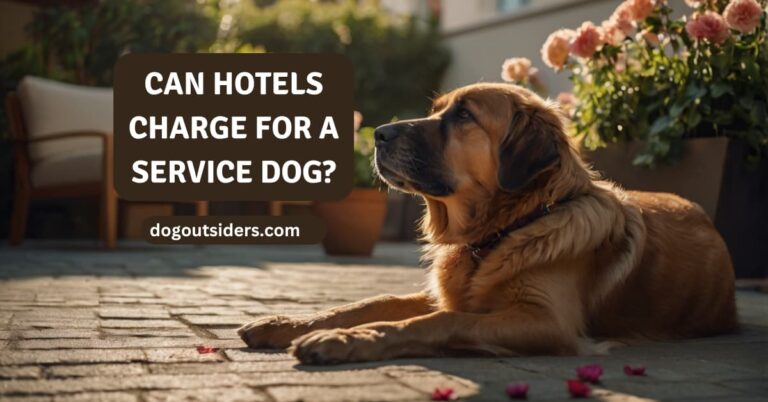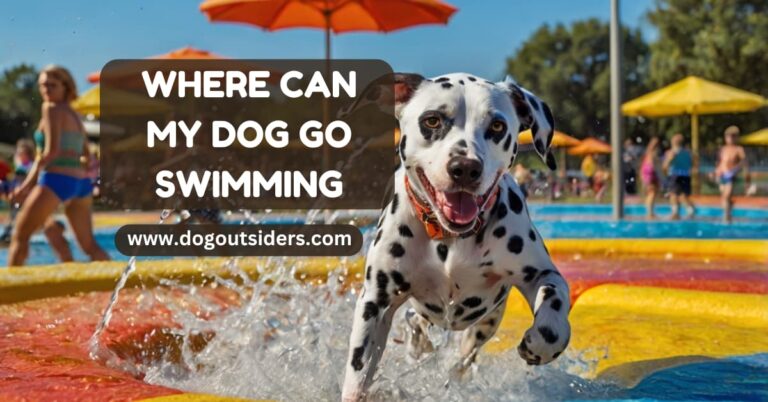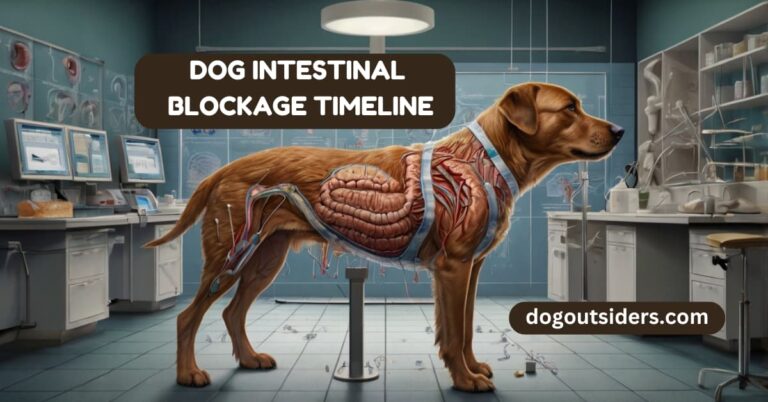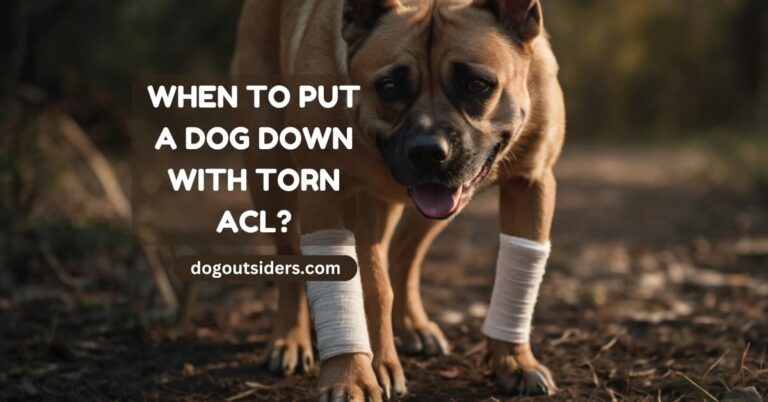Did you know that up to 30% of dogs may feel fatigued after vaccinations as a reaction? I’ve seen it firsthand with my own pup. After getting vaccinated, many dogs experience a reaction of tiredness that can last anywhere from a few hours to a couple of days. It’s crucial for pet owners to understand this, as it helps us provide the right care and support during their recovery from typical dog vaccines and any reaction.
Recognizing how long dogs are tired after vaccinations as a reaction can ease our worries and ensure they get the rest they need. In this post, I’ll share insights on what to expect post-vaccination, signs of fatigue, reactions, and tips for helping our furry friends recover quickly. Let’s dive into how we can make this process smoother for both us and our pets’ reaction.
Key Takeaways
- Dogs may experience tiredness for a few hours to a couple of days after vaccinations, so allow them to rest and recover in a calm environment.
- Monitor your dog’s behavior for any unusual signs of lethargy, as this could indicate a reaction that requires veterinary attention.
- Factors such as age, health status, and the type of vaccine administered can influence how long your dog remains tired post-vaccination.
- Older dogs or those with pre-existing health conditions may take longer to recover, so tailor your care and monitoring accordingly.
- Provide comfort measures, such as a cozy resting area and gentle affection, to help your dog feel at ease during their recovery period.
- If your dog’s lethargy persists beyond 48 hours or you notice concerning symptoms, don’t hesitate to contact your veterinarian for advice.
Common Reactions After Vaccinations

Mild Reactions
Dogs often experience mild vaccine responses after receiving their shots. Common reactions include lethargy, loss of appetite, and mild fever. These symptoms are normal and indicate the dog’s immune system is responding to the vaccine. Most dogs will sleep more than usual in the first 24 to 48 hours following vaccination.
I noticed my dog was a bit sluggish after his last vaccination. He slept most of the day but returned to his usual self shortly after. This is a typical reaction many pet owners report.
Temporary Effects
These common side effects usually resolve within a few days. Most dogs may show signs of discomfort for one to three days post-vaccination. During this period, they might not want to eat or play as they normally would. It’s essential to provide them with a comfortable space to rest.
In my experience, keeping an eye on their food intake helps gauge how they’re feeling. If they refuse food for more than a day, I consult my veterinarian.
Monitoring Symptoms
While mild reactions are common, it’s crucial to monitor your dog for any unusual symptoms. Serious vaccine reactions are rare but can occur. Signs such as difficulty breathing, swelling around the face, or severe lethargy warrant immediate veterinary attention. Allergic reactions can happen within minutes or hours after vaccination.
I always keep my vet’s number handy just in case something seems off. Quick action can make a significant difference if a serious reaction occurs.
Previous Reactions
Previous vaccine reactions may influence how a dog responds to future vaccinations. Dogs that have had adverse reactions in the past may be at higher risk for serious vaccine reactions later on. Inform your vet about any previous vaccine reactions during check-ups.
I learned this lesson when my friend’s dog had a severe reaction to a rabies shot. They now take extra precautions with each vaccination.
Necessary Vaccinations
Vaccinations are vital for preventing serious diseases in dogs. Necessary vaccinations protect against parvovirus, distemper, and rabies. Understanding the importance of these vaccines helps ease concerns about potential side effects.
Discussing vaccination schedules with your veterinarian can help manage expectations about possible side effects and recovery time.
Understanding Lethargy in Dogs

Normal Response
Lethargy often occurs after vaccinations. This reaction is a normal response as the dog’s immune system works to build protection. The vaccine stimulates the immune system, causing temporary tiredness. Most dogs will show mild lethargy for 24 to 48 hours.
I have noticed that my own dog tends to sleep more after receiving vaccines. It’s comforting to know this is a typical reaction.
Differentiating Levels
Not all lethargy is the same. Normal tiredness differs from excessive lethargy. Excessive lethargy may indicate a problem and could require veterinary attention. Signs include a lack of interest in food or water, difficulty standing, or unresponsiveness.
If I see my dog not responding to me or acting unusually, I take it seriously. Observing these signs can help catch any potential issues early.
Individual Differences
Each dog reacts differently to vaccinations. Factors like age, temperament, and health status all play roles in how lethargy manifests. Puppies might be more energetic than older dogs but can still feel tired afterward.
The impact of vaccinations on dogs can vary significantly depending on their size and breed characteristics. Generally, smaller breeds tend to exhibit heightened sensitivity in response to vaccines compared to their larger counterparts.
Lethargy can also vary based on the number of vaccinations given at once. Multiple shots may lead to increased tiredness.
Monitoring Recovery
After vaccination, monitoring your dog’s recovery is essential. Keep an eye on their behavior for signs of improvement or worsening symptoms. If lethargy persists beyond 48 hours, consult your veterinarian.
In my experience, checking in with my vet has always provided peace of mind when I’m unsure about my dog’s health.
Factors Influencing Recovery Time
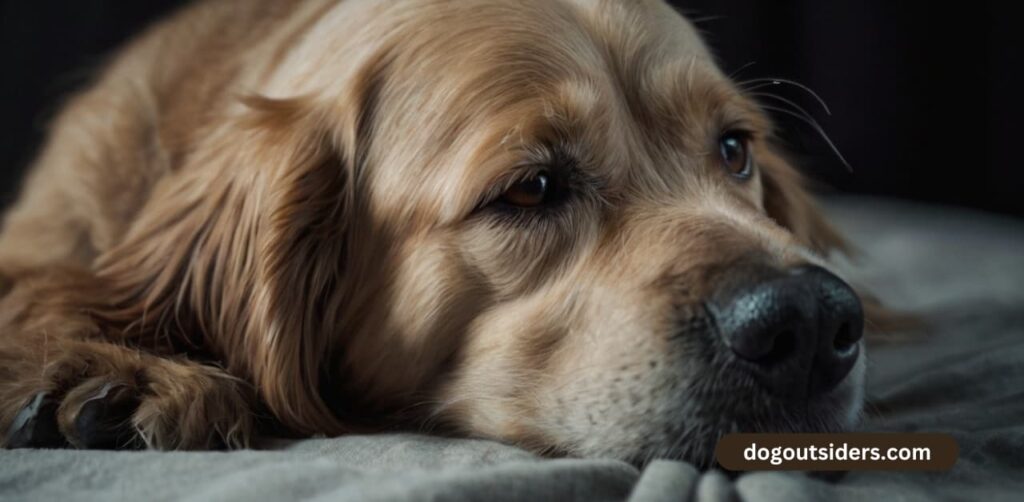
Age Impact
Age significantly affects how long dogs feel tired after vaccinations. Younger dogs often bounce back quickly. Their immune systems are more robust. Older dogs, however, may take longer to recover. They might show prolonged lethargy due to weaker immune responses.
I remember when my older dog received a vaccination. She seemed unusually tired for a couple of days. This experience made me realize that age plays a crucial role in recovery time.
Breed Considerations
Dog breed can also influence recovery duration. Certain breeds are more sensitive to vaccines than others. For instance, small breeds may react differently compared to larger ones. Some breeds have genetic predispositions that affect their immune response.
My friend has a Chihuahua who always feels sluggish after shots. In contrast, her Labrador appears energetic within hours. Observing these differences highlights the importance of breed in recovery times.
Overall Health
A dog’s overall health is another critical factor in recovery time. Healthy dogs typically recover faster than those with underlying conditions. Dogs with pre-existing health issues may experience extended lethargy.
Regular vet check-ups help gauge a dog’s health status. Keeping up with vaccinations and wellness visits can prevent complications during recovery.
Vaccine Type
The type of vaccine administered can impact how long a dog feels tired. Core vaccines often have fewer side effects than non-core vaccines. For example, the rabies vaccine usually causes less fatigue compared to some combination vaccines.
Vaccines often include adjuvants designed to boost the immune response, which may result in heightened fatigue in dogs following vaccination. It’s essential to discuss any possible side effects related to specific vaccines with your veterinarian.
Environment’s Role
Creating a calm environment aids in the recovery process for dogs after vaccinations. Stress can prolong lethargy and discomfort. A quiet space allows dogs to rest without disturbances.
I always ensure my pets have a cozy area to relax after their shots. Soft bedding and minimal noise help them recuperate faster. Providing comfort helps ease their anxiety and promotes quicker healing.
Age and Health Considerations
Puppies
Puppies often react differently to vaccinations compared to adult dogs. Their immune systems are still developing, which can cause increased tiredness. After a vaccination, it is common for them to feel more lethargic for one to three days. This recovery period allows their bodies to build immunity against diseases.
I remember when my puppy received her first shots. She slept a lot more than usual. It was concerning at first, but I learned that this reaction is typical as her body adjusted.
Older Dogs
Older dogs may also show prolonged fatigue after vaccinations. Aging affects the immune system, making it less efficient. As a result, older dogs can take longer to bounce back from vaccinations. Lethargy may last two to four days or even longer in some cases.
Underlying health conditions can complicate this situation. Chronic illnesses like diabetes or heart disease can lead to extended recovery times. Owners should monitor their older pets closely during this time.
Health Conditions
Health concerns play a significant role in how long a dog feels tired after vaccinations. Dogs with pre-existing health issues may experience increased lethargy. The body’s response to the vaccine could be weaker or delayed due to these conditions.
For instance, a dog with an autoimmune disorder may need more time to recover. This can lead to prolonged fatigue and reduced appetite. It’s crucial for pet owners to understand these dynamics.
I once cared for a dog with allergies who had a tough time after his shots. His recovery took longer than expected, highlighting the importance of being aware of health risks.
Consultation Importance
Consulting with a veterinarian is essential for tailored advice based on age and health status. Vets can provide insights into what to expect after vaccinations. They evaluate the dog’s overall health and can identify any risk factors that might affect recovery.
A vet’s guidance helps in managing concerns related to lethargy post-vaccination. They may suggest specific steps to support recovery, ensuring the dog remains comfortable during this period.
Pet owners should not hesitate to reach out if they notice unusual symptoms or prolonged fatigue. Understanding the dog’s unique needs is vital for effective care.
Types of Vaccines and Effects
Core Vaccines
Core vaccines are essential for every dog. They protect against serious diseases like parvovirus, distemper, and hepatitis. These critical vaccines are often administered during the first year of a dog’s life. Afterward, boosters are necessary to maintain immunity.
I remember taking my puppy for her vaccinations. The vet explained how these core immunizations were vital for her health. It gave me peace of mind knowing I was protecting her from severe illnesses.
Non-Core Vaccines
Non-core vaccines depend on specific factors. These include a dog’s lifestyle and geographical location. For example, if a dog frequently visits areas with high risks of Lyme disease, the Lyme vaccine becomes important.
These particular vaccinations may not be needed for all dogs, but they can be crucial for some. Reactions to non-core vaccines may also vary. Some dogs might experience mild fatigue or soreness at the injection site.
Combination Vaccines
Combination vaccines contain multiple immunizations in one shot. These are convenient as they reduce the number of visits to the vet. However, they may lead to more pronounced side effects compared to single vaccines.
For instance, a combination vaccine that includes distemper and parvovirus might cause more tiredness than a standalone vaccine. My dog experienced this after receiving a combination shot last year. She seemed more lethargic than usual for a day or two.
Vaccine Timing
Timing plays a significant role in how dogs feel post-vaccination. Puppies often receive their first shots around six to eight weeks old. Adult dogs require boosters at various intervals based on their vaccination history.
The timing between vaccinations can also affect reactions. For example, if multiple vaccinations occur within a short period, dogs may feel more tired afterward. I’ve noticed that spacing out my dog’s vaccines helped minimize any adverse effects.
Intranasal Vaccines
Intranasal vaccines offer an alternative route for certain immunizations, such as kennel cough prevention. These typically produce fewer side effects compared to injectable vaccines. Dogs usually recover quickly after intranasal vaccinations.
While my dog has received both types, she seemed less fatigued after the intranasal option. This method can be beneficial for dogs that experience stress during injections.
Managing Post-Vaccine Care
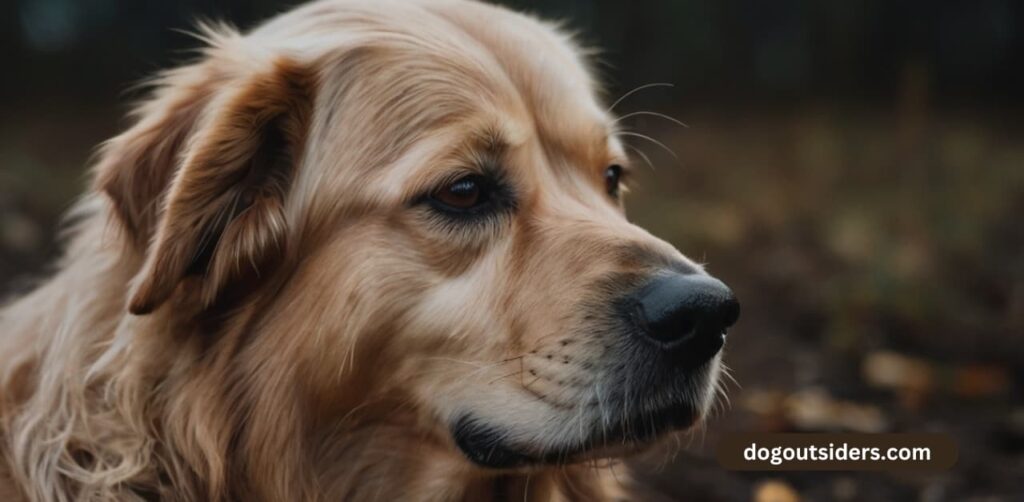
Quiet Space
After vaccination, dogs often feel tired. They may need rest to recover. Providing a quiet space for your dog is crucial. A calm environment helps them relax and recuperate. I usually set up a cozy bed in a low-traffic area of my home. This way, my dog can sleep without disturbances.
A quiet space reduces stress. It allows your dog to focus on recovery. Some dogs may show signs of fatigue for up to 24 hours after receiving their shots. During this time, they might prefer solitude. Understanding this need is vital for their health and comfort.
Food and Water
Monitoring food and water intake is essential after vaccinations. Dogs may lose their appetite temporarily. It’s important to ensure they stay hydrated and nourished. Offer small amounts of food at first. If your dog shows interest, gradually increase the portions.
I find that offering fresh water frequently encourages my dog to drink more. Keeping his bowl filled helps maintain hydration levels. Dehydration can lead to further health issues, so vigilance is key during this time.
Gentle Activities
Engaging in gentle activities can aid recovery without causing stress or overexertion. Short, leisurely walks can help stimulate your dog’s mind while keeping physical activity low-key. Always observe how your dog responds during these outings.
I often play soft games with my dog, like fetch with a light toy. This keeps him entertained without pushing his limits. Avoid strenuous activities for at least 24 hours post-vaccination. Dogs need time to heal from the vaccination treatment.
Monitoring Behavior
Observing your dog’s behavior is critical after vaccinations. Look for signs of discomfort or unusual lethargy. While some tiredness is normal, excessive fatigue could signal a reaction to the vaccine.
If you notice any concerning symptoms, consult your veterinarian immediately. Vaccine safety is paramount for your pet’s well-being. Ethical vaccine practices ensure that we protect our pets while promoting public health.
Emotional Support
Providing emotional support during this recovery phase is just as important as physical care. Dogs sense our emotions and energy levels. Staying calm and reassuring can positively influence their recovery process.
I talk softly to my dog and give him gentle pets while he rests. This connection helps ease his anxiety and aids in his overall comfort.
When to Contact the Vet
Lethargy Duration
Pet owners should monitor their dog’s energy levels after vaccinations. Lethargy can be a normal response, but it should not last longer than a couple of days. If your dog remains unusually tired or inactive beyond this period, seek veterinary attention. I remember when my dog had a vaccine and seemed sluggish for three days. It made me anxious, but he bounced back quickly.
Severe Symptoms
Immediate veterinary care is essential if your dog shows severe symptoms. Signs such as difficulty breathing or facial swelling require urgent attention. These reactions could indicate an allergic response to the vaccine. I once encountered this with a friend’s dog, and they rushed to the vet. Thankfully, timely action saved the day.
Proactive Monitoring
Being proactive in monitoring your dog’s health post-vaccination is crucial. Observe for any changes in behavior, appetite, or physical condition. Noticing subtle differences can help catch potential issues early. For instance, if your dog refuses to eat or drink, contact your vet right away. I always keep a close eye on my pets after they receive shots. It gives me peace of mind.
Importance of Vaccinations
Vaccinations protect against serious diseases like canine parvovirus and canine distemper virus. These conditions pose significant health risks to dogs. Ensuring your pet receives these vaccines is vital for their well-being. After vaccination, some dogs may experience mild side effects. However, severe reactions are rare.
Follow-Up Care
Follow-up care can include ensuring your dog stays hydrated and comfortable at home. Offer them a quiet space to rest and recover. Monitor their nose; it can indicate hydration levels. A dry nose may signal dehydration or illness. If you notice any concerning signs during this time, do not hesitate to reach out to your veterinarian.
Tips for Comforting Your Dog
Soft Bedding
Provide soft bedding for your dog after vaccinations. A cozy spot helps them feel secure. I often use a thick blanket or a favorite dog bed. This familiar environment allows my pup to relax better. The softness absorbs their body heat and can ease any discomfort.
Ensure the bedding is in a quiet area. This minimizes distractions and promotes rest. Dogs, especially puppies, need this time to recover. They may feel tired and slightly achy after the shot.
Familiar Toys
Encourage your dog’s comfort with familiar toys. Having their favorite toy nearby can be soothing. My dog tends to gravitate toward her plush toy when feeling unwell. It gives her a sense of security.
These items can distract them from any post-vaccination discomfort. Engaging with familiar scents can create a calming atmosphere. Offer these toys gently so as not to overwhelm your pet.
Calm Environment
Maintain a calm environment during recovery. Loud noises or sudden movements can stress your dog further. I keep my home quiet, especially after vaccination days. This helps my pets settle down without anxiety.
Consider using soft music or white noise machines. These can mask unsettling sounds from outside. Keeping the lights dim also encourages relaxation.
Gentle Interaction
Engage in low-energy activities post-vaccination. Gentle petting works wonders for comfort. I find that softly stroking my dog’s back helps her feel loved and safe.
Light play is acceptable but avoid anything too vigorous. Simple games like fetch or tug-of-war may be too much for a tired pup. Instead, focus on quiet play sessions that allow them to recharge.
Monitor Their Behavior
Keep an eye on your dog’s behavior after vaccination. They might seem more tired than usual, which is normal. However, look out for any signs of distress or unusual reactions.
If you notice excessive lethargy or other concerning symptoms, contact your vet immediately. Understanding what is typical for your pet is crucial during this recovery phase.
Hydration and Nutrition
Make sure your dog stays hydrated and nourished post-vaccination. Offer fresh water and light meals if they are willing to eat. Puppies may have reduced appetites but ensure they receive essential nutrients.
I always keep an eye on my dog’s food intake after her shots. Ensuring she eats properly supports her recovery process.
Conclusion:
I’ve shared insights on how long dogs might feel tired after vaccinations. Understanding the common reactions and factors influencing recovery helps me manage my dog’s post-vaccine care effectively. Each pup is unique, and knowing their age, health status, and the type of vaccine they received can make a difference in their recovery time.
I encourage all pet owners to monitor their furry friends closely after vaccinations. If my dog seems excessively lethargic or shows concerning symptoms, I won’t hesitate to reach out to my vet. My dog deserves comfort and care during this time. Stay informed and proactive; it makes all the difference for our beloved companions.
Frequently Asked Questions
Dogs typically experience lethargy for 24 to 48 hours post-vaccination. This is a normal response as their immune system activates.
Yes, reduced appetite can occur after vaccinations. This usually resolves within a day or two as your dog recovers.
Watch for excessive vomiting, diarrhea, swelling at the injection site, or difficulty breathing. If you notice these symptoms, contact your vet immediately.
Absolutely. Older dogs and puppies may feel more fatigued and take longer to recover compared to healthy adult dogs.
Yes, certain vaccines can lead to more pronounced fatigue. Consult your vet about potential side effects of specific vaccines for your dog.
Provide a quiet, comfortable space for rest. Offer plenty of water and monitor their behavior closely for any concerning changes.
If lethargy lasts beyond 48 hours or if other severe symptoms develop, it’s essential to consult your veterinarian for advice.

